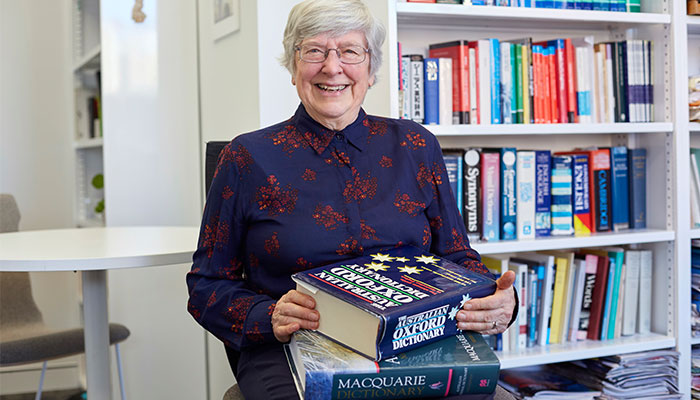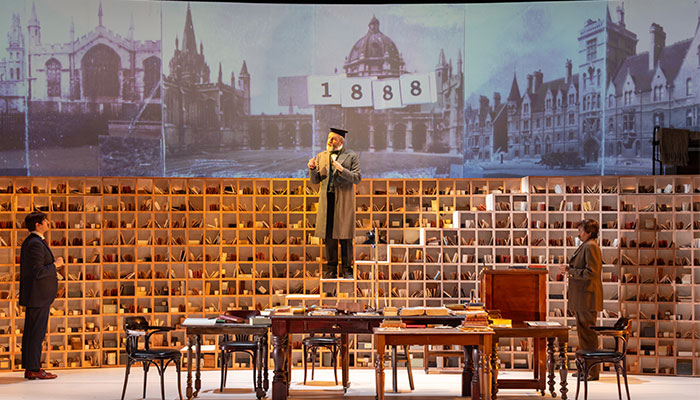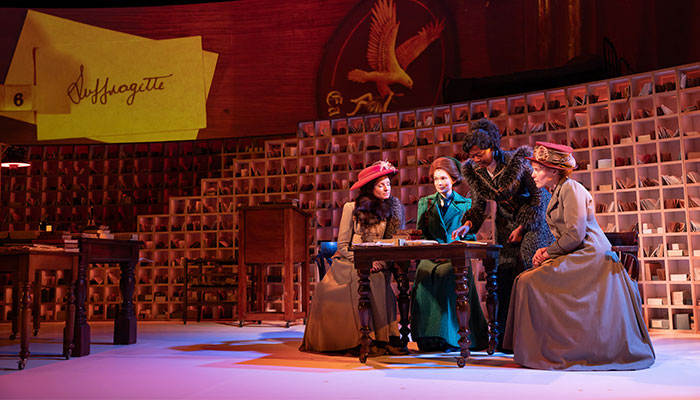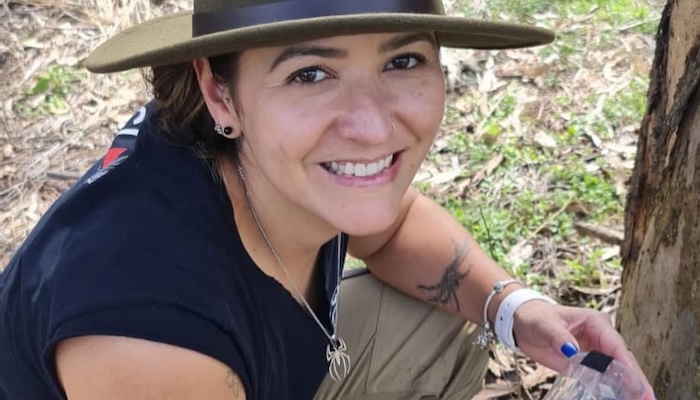This brilliant adaptation of a historical novel about the original Oxford English Dictionary drew a standing ovation from the first-night audience at the Sydney Opera House Drama Theatre. The production was peopled with believable characters from the Victorian social context in which the dictionary was painstakingingly compiled.

Word wrangler: Renowned linguist Emeritus Professor Pam Peters, pictured, spent 20 years on the editorial team of the Macquarie Dictionary (1986-2006) and has branded the Sydney Theatre Company play about creating the Oxford English Dictionary 'brilliant'.
Lively, witty dialogue between characters created a strong dynamic, to which explorations of words contributed (of course!). Obscure and even obscene words became part of the play’s fabric, ones which would be roadblocks or cringe-worthy in everyday discourse, though they are ordinary fare for lexicographers.
The drama begins with the spotlight on the central character Esme Nichols as a four-year-old, coming out from under the table around which the lexicography staff sit, discussing, drafting and editing entries to be included in the Dictionary. The editorial table is the centrepoint of the stage setting from start to finish, backed by an enormous arc of hundreds of wooden pigeonholes (over 700 of them, two-storeys high, where the paper slips containing draft dictionary entries were kept).
This setting represents the famous Scriptorium in the backyard of chief editor James Murray’s home at 78 Banbury Road in Oxford, otherwise deprecated as the “garden shed”, and affectionately known as the “Scrippy” by Esme.

Double act: More than 700 pigeonholes are used on stage as symbols for the store of information about words being considered for the dictionary; and as house letterboxes for receiving campaign pamphlets on universal suffrage. Image: Sydney Theatre Company
Long march through the alphabet
The editorial table and the backdrop of pigeonholes are persistent reminders of the core processes in dictionary-making – sifting information about all kinds of words, and the mammoth enterprise that the protagonists are taking part in. Their long march through the alphabet is wryly dramatised in a ritual greeting at the start of a meeting around the table – like saying grace at a meal – as they express their “commitment to the letters A and B” and “M and N” and so on. The play’s interest in words is pervasive, but never heavy-handed.
Adept staging makes the elevated space above and behind the pigeonholes a place for more private interactions between Esme and her maidservant Lizzie, and for the “treasure-chest” in which the discarded dictionary slips (the lost words) are stored. This space is also used for identifying some of the key words discussed (especially unfamiliar ones) projected onto an enlarged handwritten slip.
It also supports projections of the changes of location for the front of stage action, using a black-and-white streetscape of Bath where Esme goes to meet her supportive aunt, and of Oxford’s dreaming spires for episodes set outside the editorial scriptorium. A superscript flags the scene-shift to the Oxford Covered Market, along with the noisy intrusion of flower and food sellers rushing their barrows front of stage, along with the old crone Mabel, who provides Esme with a set of “women’s words”.

Women's words: The story follows four year-old Esme from her childhood in the 1880s into adulthood at the height of the women’s suffrage movement in the UK. Image: Sydney Theatre Company
The pigeonholes lend themselves to the scene-changes for Esme’s meetings with the Oxford suffragettes, and her bond with the ‘sisterhood’ is forged. When randomly lit at night, the pigeonholes become letterboxes for rather covert distribution of pamphlets on universal suffrage, and witness to street violence against it, among the negative reactions by conservative members of the community.
- Let's get this bread: how teenagers change language
- Shakespeare's English? Five ways you are speaking it daily
All these scenarios make authentic contexts for Esme’s evolution from a curious child to a keen-minded adult woman. Tilda Cobham-Hervey brings vitality and sensitivity to Esme's character in the relationships with her widowed father “Da” (Brett Archer), and maid servant Lizzie (Rachel Burke). Likewise in her formative relationship with the suffragette Tilda Taylor (Angela Mahlatjie). Their performances are consistently engaging, and as nuanced as the fine details of staging. The play resonates with energy in all the human contexts and words it brings to life.
Pam Peters is an Emeritus Professor in the Department of Linguistics and co-creator of the Macquarie Dictionary.
To book: The stage adaptation of Pip Williams' New York Times bestselling novel The Dictionary of Lost Words is playing at the Sydney Opera House Drama Theatre until 13 December, 2023.



